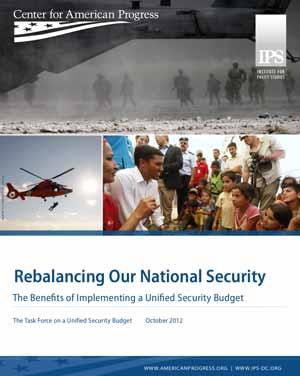
Report released by the Institute for Policy Studies and the Center for American Progress.
The debate in Washington over security spending this year is being driven mostly by the Budget Control Act of 2011, the debt reduction deal that averted a government shutdown last summer. The law mandates about $1 trillion in cuts to federal government discretionary spending over 10 years beginning in fiscal year 2012, including $487 billion in Pentagon cuts. The law also mandates another $1.2 trillion in deficit reduction, by means of spending cuts, new revenues, or both over the next 10 years, with half taken from the Pentagon and half taken from discretionary spending on nondefense programs such as Medicare, foreign aid, and education. (See the Unified Security Budget Slideshow.)
This additional $1.2 trillion in deficit reduction, known as the “sequester,” came in to play after Congress failed to reach an agreement on how to legislate the deficit reduction at the end of last year, and it will take place on January 2, 2013 if Congress fails to act again. Much effort is being expended from many quarters to see that sequestration does not happen. The House of Representatives seems inclined to exempt the Pentagon from cuts while deepening them for the rest of the budget. For his part, Secretary of Defense Panetta has said that these cuts would be a “potential disaster, like shooting ourselves in the head.”4 But the heads of many other federal government agencies involved with sequestration, among them Jeffrey Zients of the Office of Management and Budget, have been reluctant to consider the consequences of the sequester.
The members of our Task Force agree with the near-universal consensus that sequestration is more about political maneuvering than sound budgeting practice. But we argue that the amount of cuts to the Pentagon budget mandated by both parts of the debt deal is readily achievable with no sacrifice to our security—if the cuts are done in a thoughtful manner over the next decade. We also agree that some of those savings in the U.S. defense budget should be redeployed to other parts of the federal government, specifically to those non-military programs that help our nation defend the homeland and prevent global crises from escalating into military confrontations.